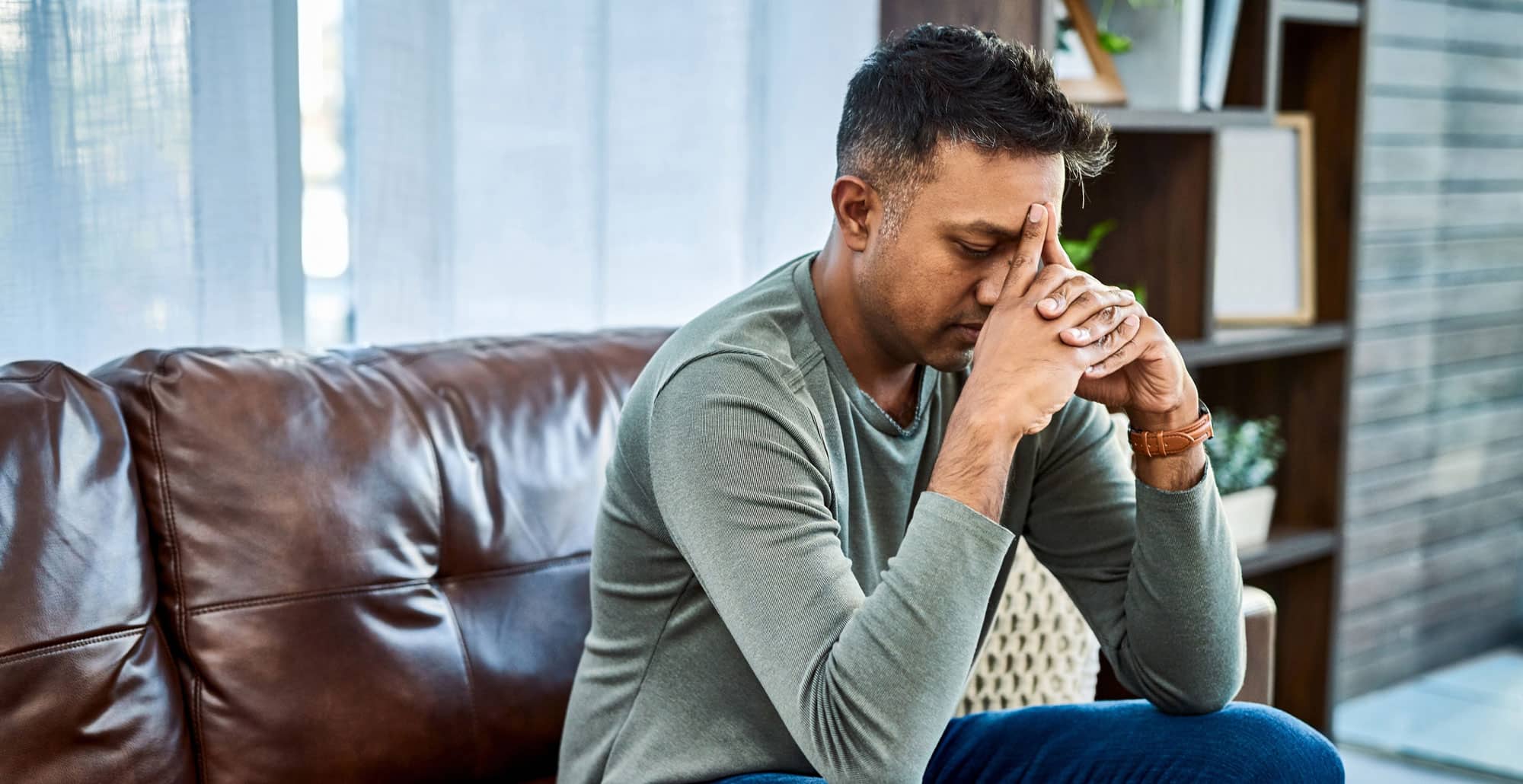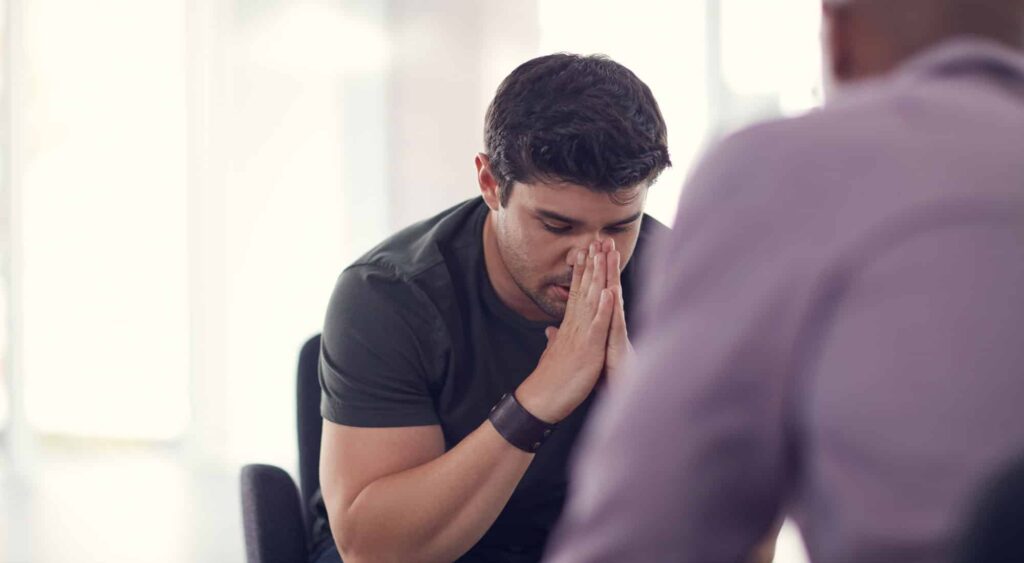By Anna McKenzie
Fear can protect us from harm, but it can also cause harm. When we feel constantly under threat — whether from our circumstances or unresolved trauma — we become vulnerable to developing mental health issues or experiencing a mental health crisis. So, how should we respond when we feel fear? Learning to let fear do its job of warning us of danger without letting it ferment into anxiety and depression is key.
The Role and Impact of Fear
We are always exposed to situations that cause us to be afraid: shootings, crime sprees, tragedies in war-torn areas, natural disasters, wildfires, political tensions, a life-threatening pandemic. Just about anything can cause us to become entrenched in fear and pessimistic about the future. For those who experience these situations firsthand, acute mental distress is often the result. For instance, a PLOS Medicine study showed that asylum seekers and refugees experience high rates of post-traumatic stress disorder (PTSD) and depression.
But you don’t have to be involved in frightening or life-threatening events to experience distress from them. Simply hearing or reading about them may be enough to generate fear. Our increased exposure to everything can impair our mental state if we aren’t careful. But what if fear itself isn’t actually the problem?
An interview with The Meadows’ Chief Medical Officer Jon Caldwell, MD, on our Beyond Theory podcast discusses the role and impact of fear:
“Fear has this evolutionary function where it helps to alert us of possible dangers in our environment. It’s a very potent emotion,” says Dr. Caldwell. “What I’ve found really interesting is the way that fear can sometimes run amuck and really have a strong presence in our lives, to the point where it can control us.”
It’s only when we allow fear to escape its boundaries that we are hampered by it. In the right role, fear is indispensable to us; when it’s pervasive or unprocessed, it can greatly inhibit us. That’s because fear can precipitate anxiety.
The Relationship Between Fear and Anxiety
It’s important to understand the relationship between fear and anxiety, especially if you have suffered from long-term or debilitating anxiety. According to the National Alliance on Mental Illness (NAMI), anxiety results from “avoiding core emotions and needs.” We may feel fear, and instead of being able to express or move through it, we suppress our emotions related to it, and it leads to anxiety.
Anxiety as a result of pushed-down fear is usually related to our past experiences. Maybe we were unable to escape danger in some situations. Maybe we were shamed for our fear. For whatever reason we are unable to express our fear-related emotions, suppression becomes our coping response.
But we must find ways to eventually deal with our fear or else risk having it run rampant in our minds and bodies later. When suppression becomes a pattern, we become susceptible to experiencing high levels of anxiety on a regular basis. High levels of anxiety can eventually lead to a mental health crisis and erode our ability to think clearly and be optimistic about our reality. This is how anxiety can lead to depression.
The Connection Between Depression and Anxiety

Depression and anxiety are so closely linked that nearly half (45.7%) of all people with major depressive disorder have reported a co-occurring anxiety disorder, according to The American Journal of Psychiatry. The repeated suppression of our emotions, especially those related to fear, has a detrimental effect on our mental and physical state. In addition to dealing with psychosomatic pain and fatigue, we may experience feelings of worthlessness and become increasingly apathetic.
As we continue to suffer from our fear-related emotions without knowing how to deal with them, we may feel threatened by fear itself. Hopelessness can also develop as our environment consistently presents us with harmful or dangerous situations. At some point, our physical and psychological health begin to have a perpetually negative influence on each other. Thankfully, they can also have a positive impact on each other as well.
How to Deal with Fear
Though it sounds counterintuitive, leaning into fear can put it back into its rightful place. Instead of suppressing our emotions related to fear, we can notice and examine them without judgment to discern what they’re trying to tell us. We can then process our emotions in healthy ways as we remind ourselves how we want to engage with the world. Fear does not have to control us.
Though it sounds counterintuitive, leaning into fear can put it back into its rightful place.
“We need to work with this wild monkey mind of ours, because it’ll attach to the fear … It’ll pull us in,” says Dr. Caldwell. “Yes, pay attention to the fear. Don’t push it away, but just notice it. Start to really practice noticing, paying attention to when the fear comes up. And when it comes up, see if you can just let it be without having to change it, fix it, numb it, escape it.”
What does it look like to lean into fear? Dr. Caldwell discusses the importance of reminding yourself of who you are and who you want to be. Fear does not have to derail you; you can simply acknowledge its signals and allow your emotions to come and go.
Some practices that enable us to move through our emotions may include going for a walk, praying, meditating, journaling, or engaging in movement through yoga or dance. Talking to a trusted friend or counselor can also be very helpful when fear seems overpowering. We all experience overwhelming emotions, but if we choose to embrace them instead of suppress or run from them, they no longer have power over us.
How to Get Help
If your fear has become unmanageable and you need professional help, we offer a range of programs and resources to help. Start your journey into recovery with us today.



